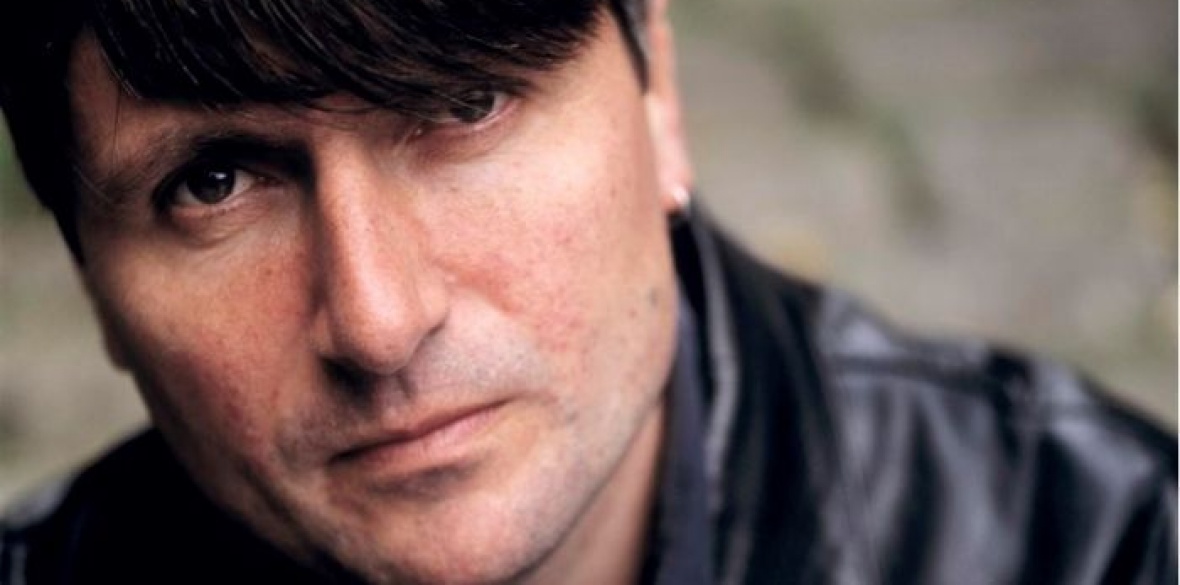This is the last article you can read this month
You can read more article this month
You can read more articles this month
Sorry your limit is up for this month
Reset on:
Please help support the Morning Star by subscribing here
THE CONTINUED existence of the Poet Laureateship in the 21st century is an embarrassing anachronism, just like the continued existence of the monarchy.
Some of our best poets have publicly refused to have anything to do with the job. Adrian Mitchell said he would only consider the role if he was allowed to “tap-dance on the coffin at every royal funeral” and Tony Harrison once wrote a long poem disqualifying himself from the job of “rat-catcher to our present queen.”
And Benjamin Zephaniah has said that he “does not need to go via the church, the state, or the monarchy to reach my people.”
Even so, the recent appointment of Simon Armitage is a good one. He has published almost 30 books, written widely for television, radio and the stage, and his poetry has been on the GCSE curriculum for many years.
He is serious without being “difficult” and entertaining without trying to be a stand-up comedian.
Above all, Armitage has been writing “public-facing” poetry for years, from early books like Zoom! and Xanadu to the millennial epic Killing Time. And he has already made it clear that he wants to make the politics of the climate crisis central to his work as laureate.
Anyone expecting him to write poems about royal babies is going to be disappointed.
Sandettie Light Vessel Automatic (Faber, £16.99) is a big new book of his uncollected poems written as a result of commissions, projects, collaborations and residencies over the last 20 years.
There are poems written originally for television and radio, three sequences written for the Yorkshire Sculpture Park, a series of poems about Bramwell Bronte for the Haworth Parsonage Museum and works from two of his travel books as well as the poems from the Stanza Stones project on Ilkley Moor.
Accessible, friendly, chatty and public “open-air” verse, this is what Armitage does best —– a kind of inspired tour guide to the contemporary world which is informative, clever and precise.
Armitage has always had a brilliant ear for the rhythms and quirks of everyday English speech —“faffing and fiddling,” “monkey business,” “chickens out,” “bottles it,” “big girls’ blouses” — as well as a fantastic eye for visual detail.
This is his description of the declining Yellow Rattle flower: “Hard times, one by the verge,/hunched, cap in hand,/shaking the poor box... a penny for Poverty, sir, most kindly.” The sea sleeps “like a drunk, its feet on the pillow/of reefs and shallows, its head where light/never breaks, face down in the sand.”
And there is a spectacular list-poem consisting entirely of metaphors for a kingfisher: “the afterglow of an arc welding torch under closed eyelids,” “the flash of a gangland tattoo under a starched white cuff,” “the static spark of a kingfisher.”
There are fine individual poems, notably From Where I Stand, The Lives of the Poets, Aubade, Nocturne and Di-Di-Dah-Dah-Di-Dit (“He loves him, He loves him not, He loves him, He loves him not),” his morse-code response to Shakespeare’s sonnet XX.
There’s a long poem here about Britain’s relationship with Europe —“on a clear day they say you can see Brexit from here” — with “Zeus as a white bull/drunk on the fumes/of his saffron breath,/chewing the cud/in a meadow near Walmer/having bucked Europa/into the water.”
And it is worth buying the book just for The Not Dead and The Great War – An Elegy, two powerful sequences written for television documentaries about those sent to their deaths by “bullet-brained leaders” where “A century on/that soil still bleeds/and earth yields up/unholy growths/of fingernails/and lower jaws/and wisdom teeth/and funny bones,/and Tommy still roams/the fields and lanes.”
Best of all is the chilling On the Existing State of Things, in which Armitage adapts a passage from The Aeneid to address the refugee crisis in the Mediterranean:
“Here a pitiful mob crowded the strand:/husbands and wives, the drained dishevelled forms/of the once-proud, bewildered children,/pale daughters and sons pulled from rubble and ash,/men and women holed by sniper rounds... They lined the banks begging to be next to cross,/arms stretched towards a distant coast./But Charon trafficked as he pleased, first these, then those,/ordering others to stand back from the boat...”











